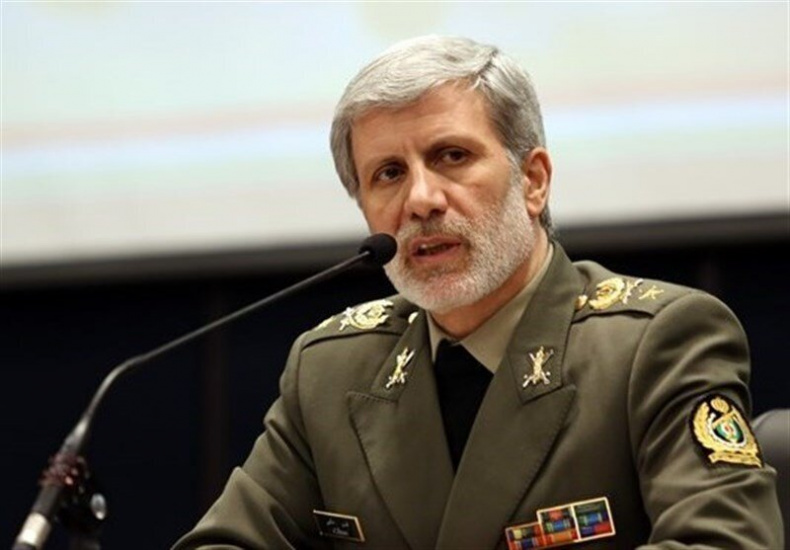Iran has inked arms deal with other countries: defense minister

Commenting on Iran’s defense cooperation with other countries, the defense minister told the Parliament news agency ICANA that “the arms cooperation of the Islamic Republic of Iran with some countries during the period when the Americans tried and imposed arms embargo against us, and after the lifting of sanctions, is well pursued.”
He added that Iran has made efforts to export arms and has made progress in this regard.
“During this period, the Islamic Republic of Iran has reached good positions in the field of arms exports to some countries and contracts have been concluded in this field. In the field of arms purchase, negotiations are also underway with various countries,” Hatami stated.
The defense chief did not elaborate on the countries with which Iran has signed arms deals.
The UN arms embargo on Iran expired in mid-October though the United States sought to extend it. The expiration of the arms embargo was part of the 2015 Iran nuclear deal, officially known as the Joint Comprehensive Plan of Action (JCPOA). Iran has called the expiration of the UN arms embargo a “major victory”.
“It was a major victory for Iran and the resistance. What expired yesterday was a thirteen-year embargo on Iran and the termination of resolutions that our friends, Russia and China, have voted in favor of,” Iran’s Foreign Ministry spokesman Saeed Khatibzadeh said a day after the expiration of the arms embargo.
Under the JCPOA, it was agreed that the UN arms embargo on Iran would be lifted in five years after the Adoption Day of the JCPOA on October 17, 2015. This period came to an end on October 18, 2020, which prompted Iran to issue an official statement declaring the termination of the arms embargo.
“As of today [October 18, 2020], all restrictions on the transfer of arms, related activities and financial services to and from the Islamic Republic of Iran, and all prohibitions regarding the entry into or transit through territories of the United Nations Member States previously imposed on a number of Iranian citizens and military officials, are all automatically terminated,” the statement said on October 18.
Back in October, the UN arms embargo on Iran sparked a rare legal crisis at the UN Security Council as most of the 15-member UN body strongly opposed the U.S. push to extend the arms embargo by triggering the so-called snapback process, a legal mechanism built into the JCPOA allowing a “JCPOA participant state” to restore all UN sanctions, including the arms embargo, on Iran in case it didn’t uphold its obligations under the nuclear deal. Most of the Security Council’s member states said the U.S. had no legal right to trigger the mechanism because it withdrew from the JCPOA on May 8, 2018.
However, despite the global outcry, the U.S. pulled the trigger on August 20 but no bullet came out. One month later, the U.S. announced the return of all UN sanctions on Iran despite the firm opposition of the international community.
“On September 19, virtually all UN sanctions on Iran returned, including re-imposition of the UN arms embargo. Accordingly, the export of certain conventional arms to Iran is a violation of UN Security Council Resolution (UNSCR) 1929 and the procurement of any arms or related material from Iran is a violation of UNSCR 1747. The United States is prepared to use its domestic authorities to sanction any individual or entity that materially contributes to the supply, sale, or transfer of conventional arms to or from Iran, as well as those who provide technical training, financial support and services, and other assistance related to these arms,” the U.S. State Department said in a statement on September 19.
But despite the U.S. announcement on the return of the UN sanctions on Iran no countries recognized the U.S. move.
On the other hand, Iran has announced that it does not need to import arms because it can produce what arms it needs. One day after the expiration of the arms embargo, Hatami said that Iran will sell more weapons than it will purchase.
“Since a year ago, many countries came to us and we had discussions with them,” Hatami said. “The ground for selling and buying weapons is prepared for the Islamic Republic of Iran, but of course, the sales will be more.”
Source: Tehran Times

